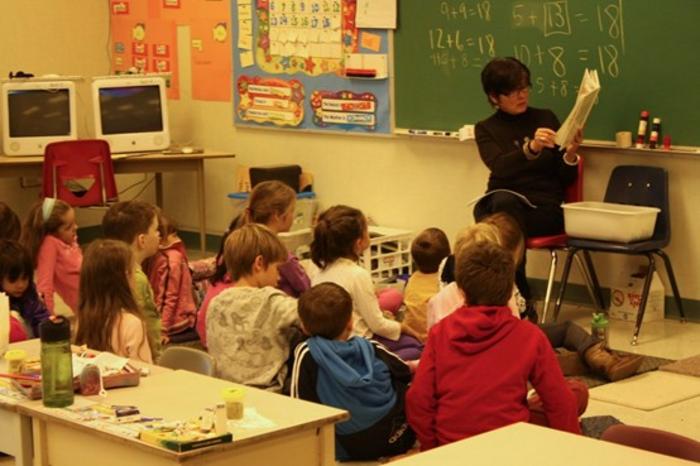In an era characterized by unprecedented change and uncertainty, the need for a transformative approach to education has become increasingly apparent. Recent research led by Dr. Guorui Fan of East China Normal University sheds light on the profound challenges faced by educational systems worldwide and proposes a radical reconfiguration of human education. The study highlights the urgent necessity to develop a dynamic educational framework that can adapt to the fluctuating socio-economic and geopolitical landscapes we now inhabit.
Dr. Fan’s research articulates that the COVID-19 pandemic, which has fundamentally altered how we engage with education, is just one aspect of a larger constellation of global crises. These include geopolitical tensions exemplified by the Russia-Ukraine conflict, stagnant economic growth, and the disruptive advent of artificial intelligence technologies. Together, these factors create an educational environment steeped in complexity and uncertainty, necessitating a shift away from traditional methodologies and structures.
The current education system has been criticized for its rigidity and its inability to accommodate the rapid pace of change in society. Dr. Fan posits that this stagnation stems from an educational model that has predominantly been influenced by industrial age thinking. The historical approach to education, which often compartmentalizes learning into distinct phases—education, work, and retirement—fails to address the realities of a modern world where lifelong learning and adaptability are crucial. Consequently, as the nature of work evolves due to technological advancements, so too must our educational methodologies.
A pertinent observation from the study involves how current educational paradigms often reinforce conservatism, which counteracts the impetus for necessary reforms. The research suggests that societal support for these educational systems is dwindling, especially as labor markets continue to undergo significant transformations. With the nature of work in flux and the rising prominence of AI in shaping knowledge production, there is an urgent call to rethink educational values and goals.
Dr. Fan highlights the aforementioned technologies, such as generative AI, which have the potential to redefine educational practices. These tools allow for personalized learning experiences, fostering skills that are increasingly relevant in today’s world. Thus, educational reform should not only focus on the content taught but also on the methodologies employed to engage learners. Moving away from rote memorization to a model emphasizing critical thinking and problem-solving will better prepare students for future challenges.
Another compelling aspect of the study delves into the concept of a lifelong education system. The idea here is to create a more fluid educational journey that accommodates various learning stages throughout a person’s life. This includes nurturing citizens who can continually adapt to societal demands, enabling them to navigate both personal and professional challenges with agility. Such a system supports continuous intellectual and emotional growth, fostering resilience in individuals.
Moreover, the study’s findings highlight the disconnect between different levels of education, which often function in silos. This fragmentation can diminish the efficacy of the educational process, as students may struggle to see the relevance of what they are learning in real-world contexts. Dr. Fan argues that an integrated educational approach, which blurs the lines between various stages and types of education, can combat this issue and create a more holistic learning environment.
In addition to these structural changes, Dr. Fan emphasizes the importance of reconstructing humanistic educational values. A shift from a purely knowledge-based paradigm to one that incorporates empathy, ethics, and social responsibility is vital. This change requires an educational contract built on understanding and cooperation among educators, learners, and society at large, ultimately encouraging collaborative knowledge sharing and innovation.
The proposed strategies are not merely theoretical; they demand actionable insights grounded in empirical data. By leveraging information from prominent international organizations, the study outlines a comprehensive approach to addressing global educational challenges. It calls for cooperation among nations to find collective solutions aimed at enhancing educational outcomes worldwide, promoting interconnectedness over isolationism.
The implications of Dr. Fan’s research extend beyond the realm of education; they resonate with broader societal needs. As nations grapple with environmental crises, economic disparities, and social injustices, the role of education as a catalyst for positive change becomes increasingly central. The study posits that an inclusive and adaptable education system can empower individuals to contribute meaningfully to society, ultimately leading to sustainable development.
In conclusion, the pressing need to reassess and reconstruct human education in light of contemporary uncertainties is echoed throughout Dr. Fan’s work. The transition toward a dynamic, human-centered educational model is imperative for fostering resilience and adaptability in an ever-changing world. Only by embracing innovation and collaboration can we cultivate an educational landscape that truly serves the needs of future generations.
Subject of Research: Education System Reform in Response to Global Challenges
Article Title: The Reconfiguration of Human Education in an Uncertain World
News Publication Date: 8-Jan-2025
Web References: ECNU Review of Education
References: DOI: 10.1177/20965311241266856
Image Credits: gibsongolfer on Flickr
Keywords: Education, Educational reform, Lifelong learning, Artificial intelligence, Human well-being, Sustainable development, Educational values, Global cooperation, Education technology, Critical thinking, Adaptability, Social responsibility.




